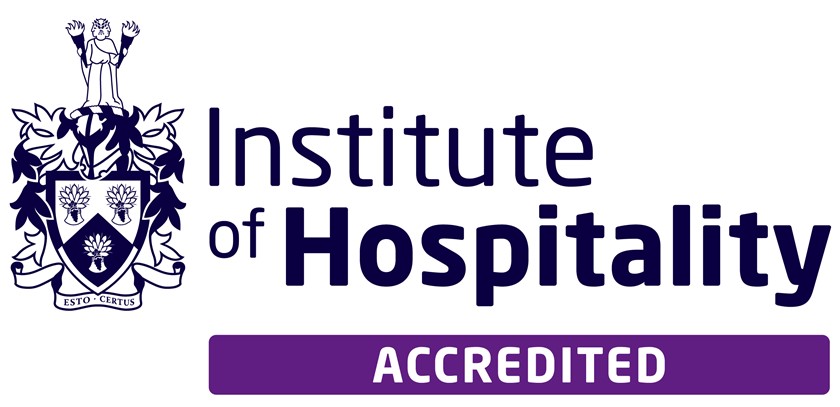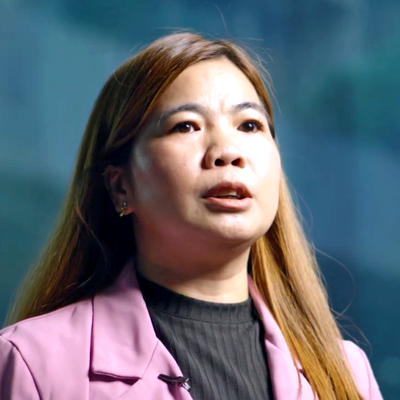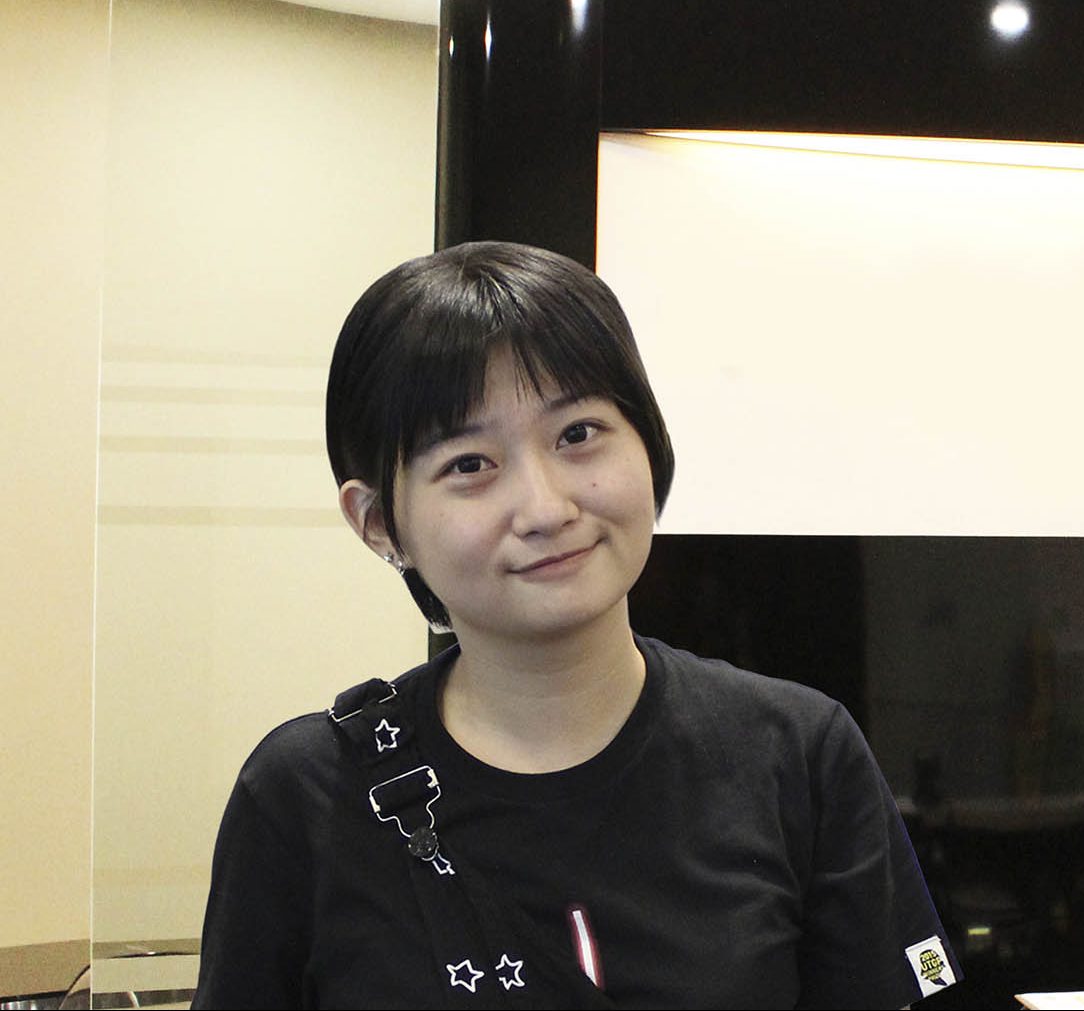
OVERVIEW
About This Programme
The hospitality management and tourism management sectors demand dynamic leaders with strategic, operational, and customer-focused expertise. LSBF’s Postgraduate Diploma in Hospitality and Tourism Management equips learners with the essential skills to excel in hotels, resorts, travel agencies, and tourism organisations.
Through a curriculum that blends theory with practical case studies, students will gain deep insights into hospitality management in Singapore, service quality, and global tourism trends. Whether you’re looking to pursue a diploma in hospitality management, a hotel management course in Singapore, or advance toward hospitality management masters programs, this course offers a valuable pathway to elevate your career.
This programme is accredited by the Institute of Hospitality (IoH).
Best Private School in Hospitality & Tourism
8 month | fulltime
fast track degree
Practical and theoretic modules
Real-life experience through 6-month Industrial Attachment
MODULES
Designed to explore beyond subject knowledge
The programme offers a comprehensive curriculum designed to develop expertise in hospitality and tourism management. Modules such as Hotel Operations Management and Food and Beverage Management provide foundational insights into key industry functions, while Marketing for Hospitality and Tourism and Hospitality Service Excellence enhance skills in strategic marketing and customer-focused management.
Graduates will also explore broader industry challenges through Contemporary Issues in Hospitality and Tourism and gain practical skills in event management through the Meetings, Incentives, Conferences, and Events module.
Hotel Operations Management
This module provides a critical understanding of the nature, scope, and diversity of the hotel industry, focusing on key components of hotel operations and best practices in management. Students will explore trends and developments in hotel operations, responsibilities of general managers, and effective management procedures.
Additionally, the module introduces students to the key elements of the MICROS-Fidelio OPERA software, equipping them with practical knowledge of industry-standard technology.
Food and Beverage Management
This module offers a comprehensive overview of the food and beverage industry, focusing on both the management and practical aspects of production and service. Students will gain an understanding of the activities within the food and beverage sector and the critical role of management in its success.
The module also examines the management of food service operations and the varied approaches adopted across different industry sectors, equipping students with the skills to navigate this dynamic field effectively.
Marketing for Hospitality and Tourism
This module explores the role and importance of marketing in the hospitality and tourism sectors, focusing on the unique aspects of services marketing. Students will gain theoretical knowledge, analytical skills, and critical thinking abilities tailored to the specific needs of this industry.
The module equips students with practical marketing skills and reflective learning, enabling them to analyse and solve problems within the context of hospitality and tourism marketing planning.
Hospitality Service Excellence
This module introduces a customer-oriented approach to service management in the hospitality industry, exploring fundamental theories of customer service, service quality, and customer satisfaction.
Students will develop an understanding of the concept of hospitality service excellence, its purpose, and its role in the modern hospitality industry. The module encourages a critical and evaluative approach to hospitality service management, equipping students with skills to enhance service quality and customer satisfaction.
Contemporary Issues in Hospitality and Tourism
This module examines the implications of a changing business environment on the hospitality and tourism industry, focusing on strategic options to address these challenges. Students will explore management challenges such as corporate social responsibility, staffing issues, managing a culturally diverse customer mix, and the impact of social media.
The module fosters a critical awareness of the diverse challenges facing the hospitality and travel industries, equipping students with the skills to navigate and address these complex issues effectively.
Meetings, Incentives, Conferences and Events
This module provides an introduction to the nature of events, including the planning, organising, and management of meetings, incentives, conferences, and events. Students will gain an overview of the industry, exploring key aspects such as marketing, management, and operations.
Topics include logistical and strategic planning, market research, event monitoring and evaluation, ticketing, contract negotiation, partnership management, and health and safety considerations. The module equips students with practical skills to effectively manage and execute diverse events.
Full programme structure and learning outcomes
Get details and learn about the advantages of learning with LSBF.
what to expect
What to expect from a this programme
Programme Aims
- Focus on the latest developments in the hospitality and tourism industry to prepare students for contemporary challenges and opportunities.
- Enable students to identify and understand the theories and techniques applied within the hospitality and tourism environment.
- Emphasise the development of professional hotel competencies, including:
- Effective communication skills
- Exceptional customer service skills
- Leadership and teamwork abilities
- Professionalism in hospitality and tourism contexts.
Learning Outcomes
- Acquire the skills and knowledge needed to be immediately effective within the hospitality and tourism industry.
- Demonstrate a critical appreciation of managerial roles within the hospitality and tourism sectors.
- Apply and evaluate decision-making and problem-solving at a managerial level.Develop problem-solving skills, enhance communication abilities, and operate effectively both individually and as part of a team within hospitality and tourism organisations.
- Critically reflect on the importance of customer service, quality, and productivity in hospitality and tourism operations.
- Evaluate and assess the critical challenges and changes impacting the hospitality and tourism industry.
Skills you will acquire

$92,000+
median Singapore salary for Accounting
483,000+
Singapore job openings in Accounting
75%
of graduates report positive career outcome
programme structure
Assessment, graduation and awards
Students must take and successfully complete all modules and the Industrial Attachment to be awarded the LSBF Postgraduate Diploma in Hospitality and Tourism Management. Students who fail to do so will be given a statement of results.
Students must achieve an overall passing grade of 40%. If students fail to achieve an overall passing grade, they will be permitted to retake based on the directions given by the examination board.
The assessment of each module consists of:
- Individual assignment or class test: 60%
- Examination: 40%
| Grade | Percentage | |
|---|---|---|
| Distinction | D | 75-100% |
| Credit | C | 55-74% |
| Pass | P | 40-54% |
| Fail | F | 0-39% |
Industrial Attachment Eligibility
In order for students to be eligible for Industrial Attachment they must have successfully completed 4 modules during their course of study.
Project
Where students specifically request they may be granted the option of completing a Project rather than undertake the Industrial Attachment. The project (10,000 words) topic is assigned by the School, students have a maximum of 3 months to complete the project after approval. Students must still meet the same eligibility requirements.
Graduation Requirements
Students must complete all modules and 6 months IA or project.
Exit Award
Where students are unable to complete the course they may be given the option of an Exit Award if the meet the following criteria:
- Passed 4 modules
In such cases the student will be awarded the following:
Postgraduate Certificate in Hospitality and Tourism Management
Attendance requirements
International Students: 90%
Local, PR, non-student pass: 75%
Teacher student ratio
1:80
Accreditation

- This programme is accredited by the Institute of Hospitality (IoH). IoH is a professional body for aspiring managers working and studying in the hospitality, leisure, and tourism industry.
STUDENT SUPPORT SERVICES
Why choose LSBF for your education
Study Materials
Students will receive study materials after they have made full payment for their programme. Replacement of study materials is subject to additional charge.
Student Portal
Students have access to the Student Portal. It is a useful site where the course information and learning materials are available for students’ easy reference.
Accessible Faculty
Students may contact their lecturers directly via email outside the lecture hours for any academic related queries.
Recorded Lectures
We will show compassion and care to all stakeholders as we believe the journey is as important as the outcome.
ELIGIBILITY
Who can apply for this programme
Minimum Academic Entry Requirement
- Completion of Degree from a recognized university; or
- Minimum age of 21 with a recognized Polytechnic Diploma (or equivalent) plus 3 years appropriate relevant work experience
- Other relevant qualifications
Minimum English Language Entry Requirement
Students must have achieved a grade C6 or better in English language GCE ‘O’ level, or the equivalent. All international students for whom English is not their first language and have not studied in an English language medium must provide evidence of their linguistic ability at IELTS 6.0 or equivalent.
Minimum Age
21 years or above
TUTION FEES
$ 8,583.75
(local students)
$ 9,890.74
International Students
FAQs
Is this programme eligible for SkillsFuture (SSG) or Post-Secondary Education Account (PSEA) funding?
SkillsFuture (SSG) and Post-Secondary Education Account (PSEA) funding are currently applicable only to selected programmes offered by public institutions such as NUS, NTU, and SMU. While this programme is not covered under those schemes, we’re pleased to offer exclusive rebates and promotional rates. To learn more about the available fee support and eligibility, please contact our Education Consultants at +65 6580 7700 or get in touch here.
What career opportunities are available after this diploma?
Graduates can pursue mid-level roles such as guest experience manager, events coordinator, or tourism officer in hotels, attractions, or destination marketing.
What can I study after this diploma?
Progress to a Master’s in Hospitality, International Business, or Marketing depending on your career vision.
What if I’m considering moving out of hospitality?
That’s fine. Your service-oriented training and planning skills are valuable in business, events, or customer experience management.
How do I get started?
Reach out to our expert education consultants at +65 6580 7700 or visit us at 80 Robinson Road, #01-00, Singapore 068898. We’re here to help you plan your next step.





















